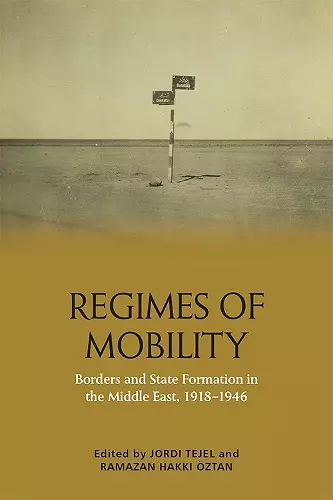Regimes of Mobility
Borders and State Formation in the Middle East, 1918-1946
Jordi Tejel editor Ramazan ztan editor
Format:Paperback
Publisher:Edinburgh University Press
Published:15th Nov '23
Should be back in stock very soon

Reinterprets the making of the modern Middle East by studying its borderlands Evidence-driven case studies cover borderlands in Turkey, Iraq, Syria, Palestine and Transjordan Informed by discussions in borderland and mobility studies, and by global and environmental history Brings late Ottomanists into conversation with historians of the interwar Middle East For the past two decades, insights gained from the burgeoning field of borderlands studies have enabled a new generation of scholars to challenge popular depictions of the emergence of the modern Middle East. For them, the region's borderlands were not just mere sites of peripheral activity, but rather liminal spaces criss-crossed by global flows and circulations central to state- and nation-formation across the Middle East. Regimes of Mobility offers a select number of case studies that highlight the connectedness of the politics of borderlands throughout the interwar Middle East. The emergence of the modern Middle East is the result of three complementary historical developments: the disintegration of the Ottoman Empire, the institution of British and French control in its stead and the nationalist challenges to this colonial scramble. The introduction of international borders that accompanied this process is commonly portrayed as the drawing of lines in the sand, an artificial partitioning that brought diplomatic closure to an otherwise contested historical space.
"Conceiving the post-Ottoman space less through hard borders than porous borderlands, and highlighting the interests of both local and colonial actors, Tejel and ztan develop regimes of mobility" into a percipient rubric for the mandate period. Framed by an astute introduction and afterword, eleven case studies trace how traders, nomads, priests and refugees negotiated customs controls, quarantine regulations and national churches amid competing notions and uses of territory. This is a timely study of both the disconnections and redirections that define eras of deglobalisation."" -Nile Green, Professor of History and Ibn Khaldun Endowed Chair in World History, UCLA
ISBN: 9781474487979
Dimensions: unknown
Weight: unknown
392 pages